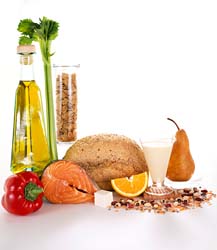Getting enough fruits and vegetables while backpacking can be a challenge. It’s hard to keep them fresh and they tend to take up a lot of space in your pack.
But this doesn’t mean that you have to go without your daily dose of necessary vitamins and minerals. With a little bit of planning, you can make sure that you get plenty of healthy produce while still lightening your load.
One way to ensure that you get your daily requirement of fruits and vegetables is by packing dried versions. Dried fruits such as raisins, apricots, dates, and prunes are lightweight, take up minimal space in your pack and provide plenty of vitamins and minerals.
Dried vegetables such as peas, beans, corn, carrots, celery, mushrooms and onions also weigh next to nothing but provide plenty of nutrition. And don’t forget about dried herbs like oregano, rosemary or basil – these are light weight powerhouses full of flavor.
If you have access to a cooler or an ice chest while on the trail then you can also bring along some fresh fruits and veggies with you. Carrots, cucumbers, peppers and other crunchy vegetables are great for snacking on during the day or for adding to salads at night.
Fruits like apples, oranges or pears all travel well in a cooler (plus they won’t get squished in your pack! ).
Freeze-Dried Foods
Freeze-dried foods are ideal for backpacking because they weigh almost nothing (many folks refer to them as ‘hiker crack’) yet still provide a wide variety of nutrients. You can buy pre-packaged meals with freeze-dried fruits and/or veggies included or just buy the freeze-dried ingredients separately so you can add them into whatever dishes you’re already making on the trail.
Dehydrated Vegetables
Dehydrated vegetables are another great option for backpackers looking to get their daily dose of produce while still keeping their packs light. Dehydrating removes the water from the veggies so they’re much lighter than their fresh counterparts yet still offer lots of vitamins and minerals. Dehydrated veggies come in convenient packages that can easily be rehydrated with hot water when it’s time to prepare dinner.
Conclusion
Getting enough fruits and vegetables while backpacking doesn’t have to be an impossible task. By packing some dried versions such as raisins or dehydrated vegetables like mushrooms; bringing along some fresh produce if access to a cooler is available; or opting for freeze-dried items such as pre-made meals or individual ingredients; hikers can make sure they’re getting plenty of vitamins and minerals without having to carry too much weight.
